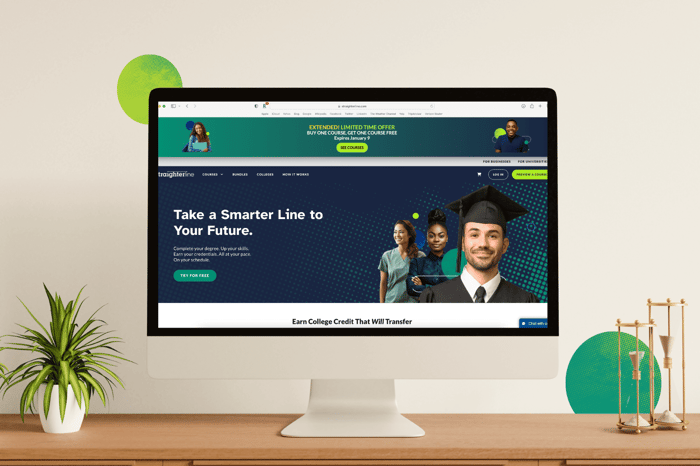If you’ve been thinking a bit more about job security, you’re not alone. It’s completely normal to consider what comes next when there’s economic uncertainty! If you’re just deciding on your degree, talk of a recession is a reminder to choose wisely. And for those who have already entered the workforce, it can be a moment to reconsider your next steps or even make a career change.
The good news? Even in an uncertain economy, some careers stay in demand. Today, we’re talking about five recession-proof jobs and why they’re so in demand. With these careers, you can find job security, no matter what the economy is doing.
Five Recession-Proof Jobs Expected to Stay in Demand
1. Physician Assistant - High Demand in Healthcare
Healthcare professionals are usually well protected when recessions hit. And with a population that’s getting older and a general shortage of healthcare workers, demand is expected to stay high in the years ahead.
Few healthcare jobs are as in-demand as physician assistants. The Bureau of Labor Statistics (BLS) expects employment for physician assistants to grow by 28% by 2033—that’s much faster than the average for all other occupations!
While physician assistants can provide many of the same services as physicians, their training is typically completed faster, making this a great job to work towards. This is especially true As healthcare institutions rely more and more on physician assistants to staff hospitals and care facilities.
How to Get Started as a Physician Assistant
The typical path for a physician assistant is to get a bachelor’s degree in healthcare or a related field. Even better if you have prior experience in patient care! To get started, check out our Medical Career Paths or Nursing Career Paths.
Read More: 7 Health Sciences Careers You Shouldn’t Overlook and 3 Ways to Get Started in a Nursing Career.
2. Law Enforcement Officers – Essential Public Service
Although The Bureau of Labor Statistics predicts jobs in law enforcement will grow at the average rate (4% between 2023 - 2033), the benefit of this career path is job stability. That’s because funding for law enforcement jobs is connected to local and state budgets rather than private funding.
Going into law enforcement can be a solid career choice for career changers or people seeking stable work within the justice system. In most cases, the job also comes with great benefits and opportunities for early retirement.
How to Get Started as a Law Enforcement Officer
The requirements for law enforcement officers vary by location. Some departments require a college degree, while others require only a high school diploma. Candidates typically complete a training academy, followed by on-the-job training.
To get started, check out our Introduction to Criminal Justice course. It explores the history and types of law enforcement and is an affordable way to figure out if this career path is right for you.
3. Accountant - Critical Financial Role
You may expect that demand for accountants would decrease during an economic recession. While there is some truth to that, overall demand for accounting services usually stays high. That’s because businesses need accountants regardless of how the market is going. And as long as the tax landscape keeps evolving, this job is an essential one!
So, what are the perks of being an accountant? The job tends to be well paid, and there are lots of growth opportunities. Tax season also means a predictable “busy season” that you can plan your vacation and other life commitments around.
How to Get Started as an Accountant
Most accountants start with a bachelor’s degree in accounting or a similar field. From there, you have to pass the Uniform CPA Exam to receive a Certified Public Accountant (CPA) license. To get started, Accounting I and Accounting II will teach you the basics of accounting principles and functions.
4. Teacher or Professor — Education Endures
Similar to law enforcement officers, funding for teachers is usually affected more by local and state budgets than changes to the economy.
While BLS shows a decline in new teaching jobs for K-12 between 2023-2033, there are still millions of teaching roles and this career is still relatively recession-proof. That’s because there will always be a demand for teachers! Especially for those who are flexible, specialized subjects like STEM or foreign language, or working in a district with union protections.
As many institutions hire part-time teachers and adjunct professors, it’s a bit easier for entry-level teachers to get their foot in the door for a full-time education career! teacher article And if you’re really looking for a job that’s growing, it’s worth noting that demand for preschool teachers and college and university professors is still expected to increase.
How to Get Started as a Teacher
Most teachers get their bachelor’s degree in education. Postsecondary teachers go on to get their master’s or PhD in their field before working in a classroom. To get started, check out our Early Childhood Education Career Path or Education Studies Career Path.
Read More: Which Teaching Prerequisites Should You Take Online
5. IT Professionals – Technology Never Stops
While the nature of the work is always changing, the demand for IT professionals in the US is growing. The costs of outsourcing are starting to outweigh the benefits. As a result, the demand for IT professionals in the U.S. is expected to steadily increase over the next decade at a much faster-than-average rate for all other occupations.
Since every industry needs technology, working as an IT Professional proves to be a pretty recession-proof job. If you’re someone with technical skills (or can adapt to new technologies easily) and you’re ready to keep learning throughout your career, working as an IT professional can offer lots of flexibility and a great salary.
How to Get Started as an IT Professional
Jobs in IT don’t always require a degree, but a great way to learn is with a bachelor’s degree in computer science or computer programming. Keep your skills current with continuing education classes and certifications in your specialty.
To get started, check out our Information Technology (IT) Career Paths. You can cover your basics with IT Fundamentals or one of our Introduction to Programming courses.
What do you think are the best recession-proof jobs?
Whether you're just starting college, returning after a break, or taking online classes part-time, finding a career that offers both stability and purpose is key.
The economy will always have its ups and downs, but some careers are expected to remain strong no matter what. Consider this list a starting point for recession-resistant jobs that will help you build a secure (and fulfilling) future!
StraighterLine has helped 350,000+ students make progress on their degrees. Take a look at our courses today and get started towards a recession-proof career on your schedule!












